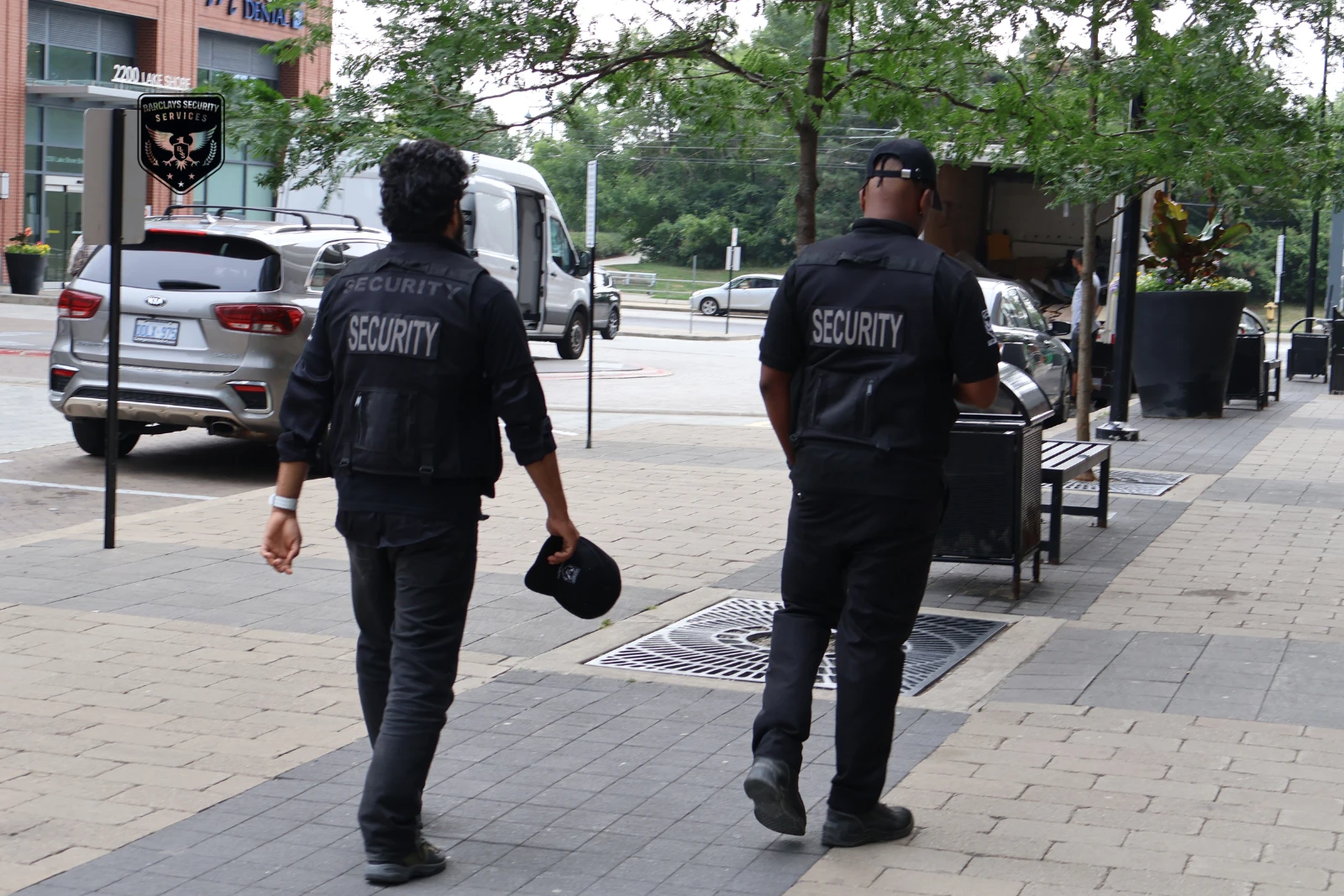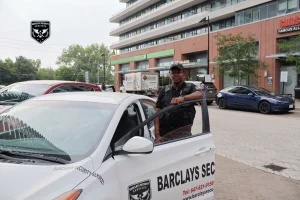Summary
The industries that benefit most from mobile patrol security in Canada include construction, retail, real estate, warehouses, schools, and healthcare. Mobile patrols deter theft, provide rapid response, and increase safety. In Toronto and the GTA, Barclays Security Services offers licensed, GPS-tracked patrols tailored to each industry.
Introduction
Canada’s economy is built on diverse industries, but every sector faces security risks. From theft at construction sites to vandalism in retail centers, businesses are realizing that traditional alarm systems alone aren’t enough. Mobile patrol security provides a proactive, flexible solution: guards who patrol perimeters, perform random checks, and respond in real time.
But which sectors actually benefit most? Let’s look at the industries where mobile patrols make the biggest difference.
Construction Sites: Protecting Tools, Equipment, and Timelines
Construction sites are vulnerable due to open layouts and valuable assets. Heavy machinery, copper wiring, and tools are prime targets for theft. A stolen excavator part or generator can halt progress for days. Mobile patrol officers deter theft by performing random site visits, checking access points, and ensuring only authorized personnel are on-site.
Retail & Shopping Centers: Stopping Shoplifters and Trespassers
Retail businesses – from malls in Toronto to small stores in Vaughan – experience constant risks from theft and vandalism. Security cameras record incidents but can’t intervene. Mobile patrol guards add visible deterrence by patrolling parking lots, inspecting entrances, and approaching suspicious individuals before crimes occur.
Commercial Real Estate: Ensuring Tenant and Property Safety
Office buildings and mixed-use complexes must safeguard both assets and people. Mobile patrol officers check entrances after hours, ensure fire exits are clear, and respond to tenant complaints such as trespassing. For landlords, this not only reduces liability but also boosts tenant retention.
Warehouses & Industrial Facilities: Guarding Inventory Worth Millions
Distribution hubs and manufacturing facilities store high-value goods. Mobile patrol security helps secure perimeters, loading docks, and yard areas. By conducting randomized sweeps, officers make it far harder for thieves to predict and exploit weak points.
Education and Healthcare: Safeguarding Vulnerable Environments
Schools, colleges, and hospitals have unique challenges. Patrol officers help deter vandalism, monitor parking lots, and provide support during emergencies. Their presence helps staff and students feel secure while discouraging trespassing and after-hours intrusions.
Barclays Security Services: Protecting Canada’s Key Industries
At Barclays Security Services, we understand that each industry has its own risks. That’s why our mobile patrol services are flexible and tailored:
- Construction: Randomized patrols, perimeter checks, and equipment monitoring.
- Retail: Parking lot sweeps, after-hours monitoring, and shoplifting deterrence.
- Commercial Real Estate: Lockup services, tenant support, and fire watch patrols.
- Warehouses: Secure dock inspections, inventory protection, and employee safety.
- Education & Healthcare: Campus patrols, parking lot monitoring, and emergency response.
Our guards are fully licensed, trained under Ontario law, and equipped with GPS-tracked reporting systems. With Barclays, businesses gain more than patrols – they gain accountability and peace of mind.
Call +1 647-821-9155 or visit Barclays Security Services to schedule your FREE assessment.
FAQs: Industries That Benefit Most from Mobile Patrol Security
- What industries benefit most from mobile patrol security?
Construction, retail, commercial real estate, warehouses, education, and healthcare see the greatest impact because they face high theft and safety risks. - How does mobile patrol help construction sites?
Patrols deter theft, inspect perimeters, and ensure only authorized staff access the site, keeping projects on schedule. - Why is mobile patrol effective for retail businesses?
Officers conduct parking lot checks, monitor storefronts, and discourage loitering, reducing shoplifting and vandalism. - How do mobile patrols secure office buildings?
They perform lockup services, check entrances, and respond to alarms, providing tenants with a secure environment. - Can mobile patrols reduce theft in warehouses?
Yes, patrols monitor docks, perimeters, and storage areas, creating unpredictable coverage that makes theft difficult. - Are educational institutions safer with mobile patrols?
Absolutely – patrols monitor campuses after hours, ensuring student and staff safety while reducing trespassing. - How do mobile patrols assist healthcare facilities?
They secure parking lots, support staff dealing with disturbances, and provide fast response in emergencies. - Do mobile patrols replace security cameras?
No, they complement cameras. Patrols intervene on-site, while cameras provide monitoring and evidence. - Can small businesses afford mobile patrol security?
Yes, mobile patrols are often more cost-effective than hiring full-time guards because services are shared across properties. - What is the difference between static guards and mobile patrols?
Static guards remain in one location, while mobile patrols cover multiple areas, providing flexibility and wider coverage. - How fast can mobile patrols respond to an incident?
Response times vary, but in urban areas like Toronto, patrols can often respond within minutes. - Are mobile patrols active at night and weekends?
Yes, many businesses rely on overnight and weekend patrols when risks are highest. - Do patrol officers provide reporting to business owners?
Yes, providers like Barclays deliver detailed, GPS-verified reports after every patrol. - How do mobile patrols reduce insurance costs?
Insurance providers may lower premiums when businesses implement patrols because risk of loss decreases. - Why choose Barclays Security Services for mobile patrol security?
Because Barclays combines licensed guards, 24/7 response, transparent reporting, and industry-specific expertise.





